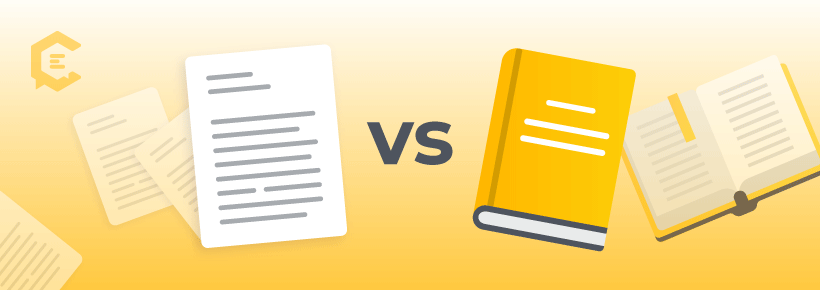In this series, we examine how Umberto Eco’s book, ‘How to Write a Thesis,’ can be used to help writers improve their focus, research smarter and get any writing project done faster. In part five, we explore the benefits of free-writing and journaling.
Umberto Eco’s newly English-translated book: How to Write a Thesis offers generous kernels of advice for writers. Yes, even those making efforts to sustain interest in blog posts, ebooks or long-form journalism.
Essentially, Eco’s stance on writing encourages writers to value academic rigor and critical thinking, especially if one is finding a voice vital to democracy’s free-spirited conversation.
In this blog post, we’ll talk a bit about free-writing and journaling. Though Eco doesn’t use these particular terms to describe his advice to writers, he certainly points to how the practice can help build a writer’s confidence.
Free-writing and journaling: Why do it?
These days, the term, “journaling” has been co-opted as a writing process applied to find the soul and one’s “true feelings” when seeking self-realization. But for skilled writers, journaling is not used to access our deepest, most intimate feelings, but a way to shed the junk off the top layers of a writer’s mind.
Most of us read and collect ideas from other writers. We “borrow” ideas more liberally than we admit. Very frequently, we parrot other people’s ideas without coming up with anything original ourselves.
Eco’s advice on free-writing
- “Write everything that comes into your head, but only in the first draft.”
- “You may notice that you get carried away with your inspiration, and you lose track of the center of your topic. In this case, you can remove the parenthetical sentences and the digressions.”
Essentially, Eco is telling writers to free-write, a process of putting ideas on paper, unencumbered by judgment. Write thoughts down freely. Just to get the flow going, but always know it’s the first draft.
My analogy is that to watercolor painting: When confronted with a blank sheet, start by layering light colors to your paper. Move to dark colors after sketching. Consider free-writing as your first layer of light colors.
In the process of free-writing, very acute selective thinking is actually happening at the unconscious level. In reality, free-writing allows us to slow down and select keywords and phrases and put them on paper. The results come from re-reading what you wrote.
Upon reading your free-writing, you can begin to decipher between what looks like other people’s ideas and what are yours. Some intermittent thoughts might appear as repeated turns of phrases or word groups which hint at an original idea.
The act of selection, in itself, forces a writer to choose between their narrative stance and their identity. This spot is what we also call a writer’s critical distance. Trust those voices, they will lead you to your original idea.
Eco’s advice on journaling
- “Do not insist on the beginning with the first chapter.”
- “Perhaps you have more documentation on chapter 4. Start there, with the nonchalance of someone who has already worked out the previous chapters. You will gain confidence.”
Eco’s advice to not start at the beginning is about making sure you find your strong spot when you start writing. Confidence is half the battle for many writers. And if ever you get to the state of “nonchalance,” then such an attitude certainly helps with sounding authoritative.
Journaling often helps when you have a specific quote or series of ideas that you want to delve deeper into. In journaling, allow yourself to use the pronoun: “I” as you write. This will help you distinguish between what you think, and what the other writers are saying about the topic you are investigating.
In later drafts, you can remove the “I” sentences and restructure them without the “I” present. Eco actually prefers the majestic “we” because it presumes that readers can share what the writer is saying. The use of “we” indicates the social act of writing.
Free-write or journal: How to decide which technique to use
Now, the techniques of free-writing and journaling share similar goals: Each begins an effort to give the writer a kick-start into writing something, be it a first draft or a few paragraphs on something they feel they know intimately.
To decide where your mind is and which technique to use in your situation, you need to ask yourself:
- Is my mind drowning in other people’s ideas? Overstimulated?
- Is it full of information, but focused on some key issues and ideas?
I find free-writing helps those who feel they need to quiet the noise. When I taught “Writing the Essay” to New York University undergraduates, I started nearly every session with free-writing. Students inundated with a vibrant city found the free-writing sessions of 10-15 minutes very centering. After this exercise, students felt ready to get their mental clogs turning on a directed topic.
Journaling works best when the writer feels really focused about a certain section of their thesis or story, but continues to have lingering questions or thoughts related to subsections or tangential ideas which they think are linked to their central ideas. Journaling creates a space for a writer to explore what she hasn’t yet mentally unpacked.
Often, journaling is a form of getting those intricate, linked thoughts on paper and also giving yourself the space to reflect on why a certain thing is not yet fully conscious to you yet.
Both free-writing and journaling are great tools for writers to bring forth ideas that can contribute to the free-spirit of democratic conversations.
[bctt tweet=”Both free-writing and journaling are great tools for writers to bring forth original ideas. #creativity #writingtips” via=”no”]
Read other articles in this writing series:
- Research Like a Pro: The Professor’s Guide to Smarter Writing Research
- A Writer’s Work Plan: Diagramming and Mapping Out Your Mind Before Writing
- Why Academic Humility Is an Essential Part of Research and Writing






